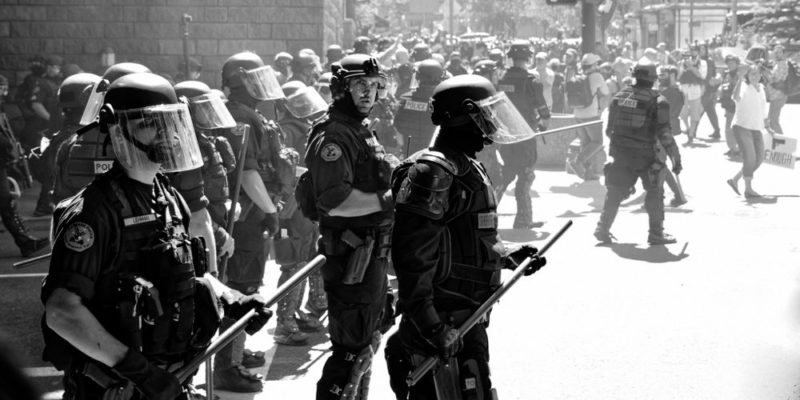Chastising worldwide powers, political scientists have observed during the past decade that authoritarianism has been more than ever used by states that strengthen themselves and dampen their opponents and democracy. Of course, such a tendency jeopardizes the future of democracy in the entire world, it destabilizes the regions, and it is contrary to the freedom and rights that numerous countries strive for.
The recent global turbulence that produced authoritarian leaders and political systems is a painful reminder of how quickly the fragile thing called democracy can be upset. With more autocrats and populist leaders that sustain themselves on political breakdowns, suppression of any form of demonstration, and controlling and manipulating information as methodologies to acquiring political authority, the fundamentals of democracy are endangered as a global product. There have been wins for the people’s rights; checks and balances have been eradicated, civil liberties subdued, free speech has been stifled as well as the independence of certain bodies; all of which have brought about fear and insecurity.
Besides, authoritarianism does not stop there, it goes further in aggravating ‘eroding’ the rule of law, contributing to the enhancement of social injustices, and kindling aggressive nationalism. This is why it is crucial for us, as humans and for society in general to realize the scale of this problem and demand all the countries and states in the world to think and act as one to protect democracy and democratic values and support human rights and the organizations and institutions which aim at informing the public about their activity. Thus the future of democracy in all the world and thus freedom as well as protection of all the citizens will be affected.
Everybody knows that in recent years, there have been increasing tendencies toward the concentration of power in the hands of several elites within the different states of the world. Authoritarian leaders in Russia, China, Turkey, and Hungary have gone to the extent of obliteration by eradicating the independence of the judiciary, monkeying around with the electoral processes, and also restricting people’s liberty. Such leaders have to perform in the interest of the nation, security, or the economy, and then turn to populism to remain in power. Without a doubt, authoritarianism is coming on the rise all over the world which is straining the democracy of the world.
Transformations in democracies consist of aspects such as; the leaders being held accountable for their actions, the provision of information to the public, and the requirement of the leadership to work within a constitution. However, the authoritarian regimes operate behind closed doors and are rarely checked, so they indulge in corruption, human rights abuses, and economic crimes. In addition, these regimes have been empowered by the receding domain of Western liberalism which they regard as a result of the world order that emerged after the Second World War.
Authoritarianism, seen around the world, has inspired other authoritarian leaders; this has become contagious and has dented the standards of democracy around the world. Authoritarian regimes interfere in each other’s domestic politics while they assist each other operationally in ways that undermine democracy. This has led to poor cohesiveness of global institutions such as the United Nations which in its real sense needs the cooperation of all member countries in the promotion of peace and order in the world.
However, as earlier noted, digital authoritarianism has aggravated the problem in recent years. Such new authoritarian governments are professional in the use of technology to oppress their people through surveillance, censorship, and limitations to the freedom of the internet. For instance, while in China, the ‘Great Firewall’ is the censorship technology, in Russia, systematically deceived or manipulative news or ads in the form of ‘fake news’ have become norms of the new world’s democratization. This not only inhibits dissent within their nations but also, in a direct way, jeopardizes free-speaking democracies across the globe as people come to doubt the credibility of the democratic process through fake news and cyber vandalism.
It does not leave civil society out either: the effects are also very severe. For example, we see that freedom of the press in dictatorships is always the first one to be quashed because reporters are threatened, arrested, or even killed. Furthermore, the government either limits the functioning of civil society organizations or just does not allow their existence at all, which implies that the citizens have no other way to make their voices be heard and to force the authorities to behave correctly. This oppression results in fostering an environment that supports suppression and indifference thereby promoting more authoritarianism.
In many countries today, valiant campaigners, journalists, and ordinary folk are struggling for their rights and democratic freedoms often with their lives at stake. Internationally, democratic countries should stand up in solidarity for such endeavors to increase human rights and the rule of law.
The international society also should understand that the struggle against authoritarianism is not just the struggle for concrete countries but for democracy as a whole. To this trend, democratic countries must reawaken to the ideology of democracy, freedom, equal rights, and justice. These include backing up democratic struggles, pressuring despotic powers, and strengthening the structures that sustain the world’s democracy.
In conclusion, thus the world has been experiencing authoritarianism which greatly endangers democracy, freedom, and human rights. When the authoritarians are emerging or strengthening, the world has to act effectively and be ready to protect the principles on which the democracies are based. It is a shame that democracy is still struggling to find its champions across the globe, and today’s decisions are the basis for tomorrow’s rule.
Table of Contents
ToggleWania Jahangir Khan
Wania Jahangir Khan is a dedicated scholar specializing in Defence and Diplomatic Studies, with a particular focus on the South Asian region. Her academic pursuits involve a deep exploration of diplomatic engagements and strategic alignments between nations, emphasizing the analysis of geopolitical shifts, policy implications, and bilateral cooperation. Having completed her bachelor's degree from Fatima Jinnah Women University, she possesses a strong interest in Defense studies, particularly in understanding the complex dynamics that shape regional and global security. She can be reached at Waniajahangir@defensetalks.com
















